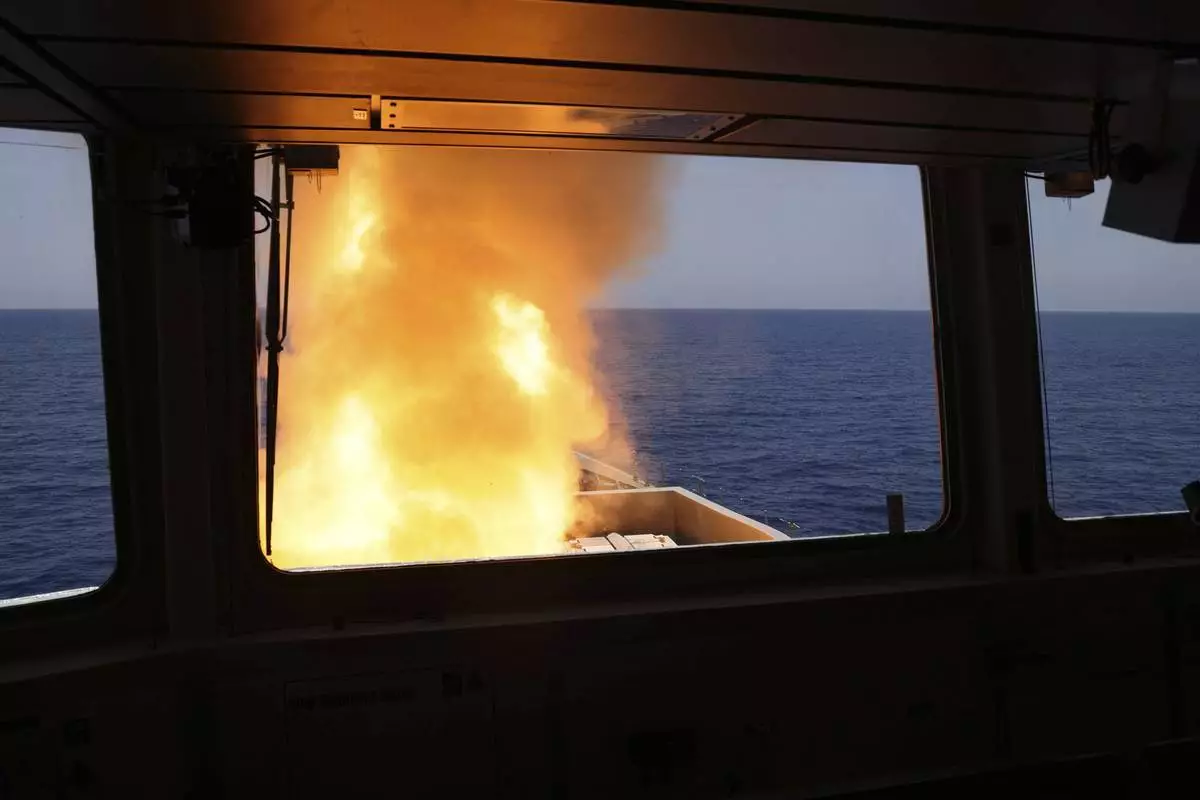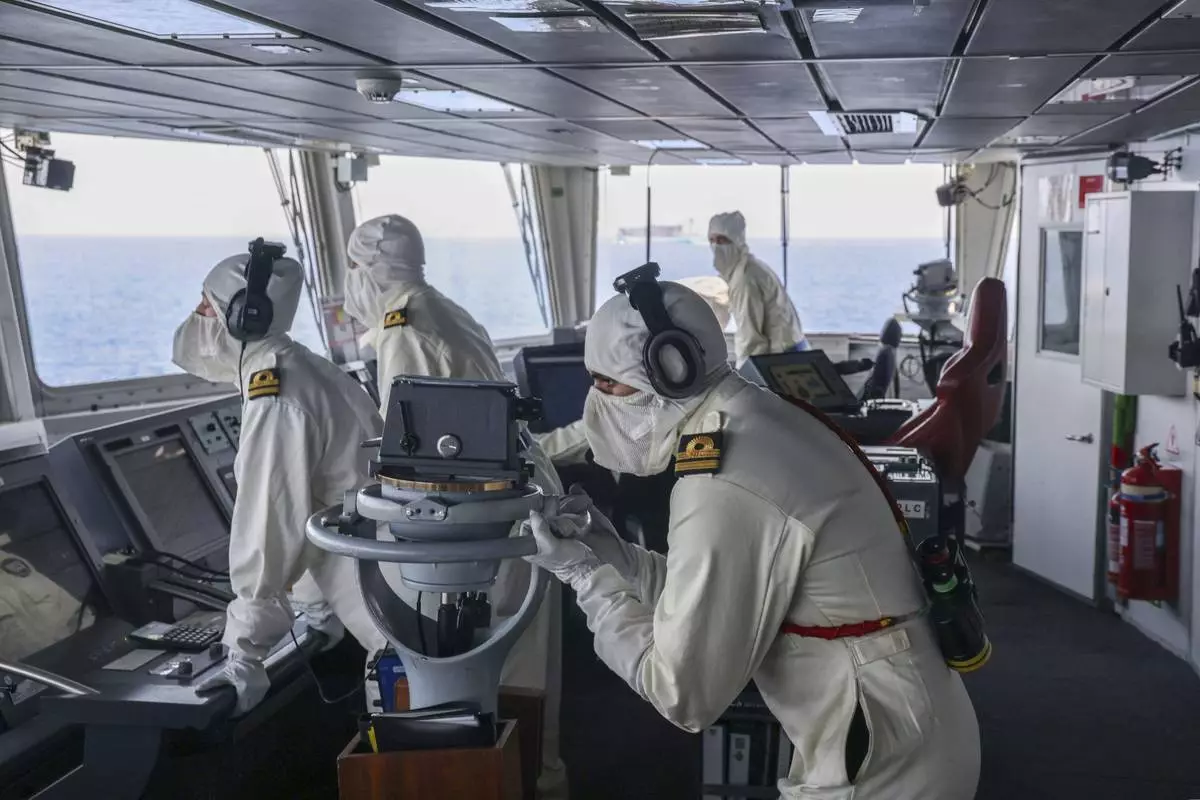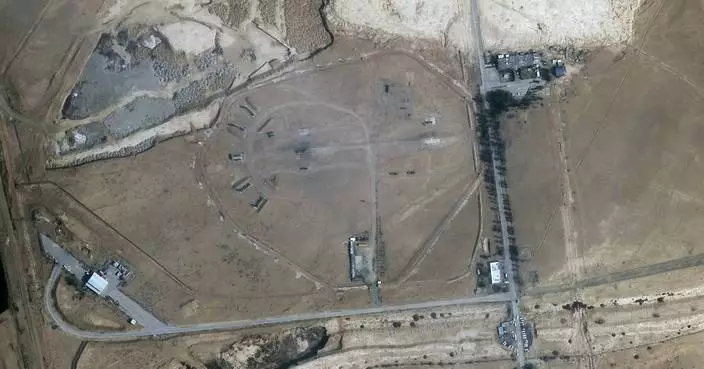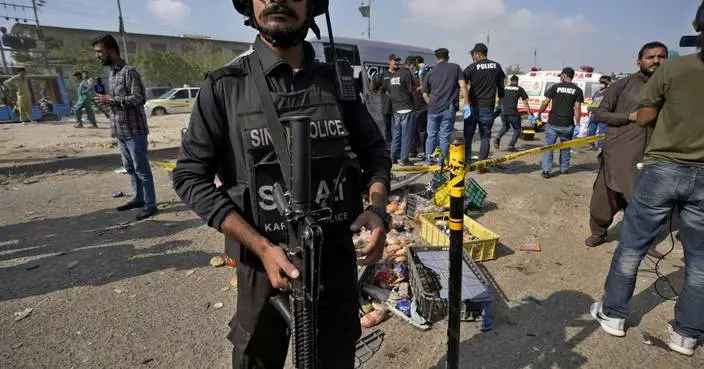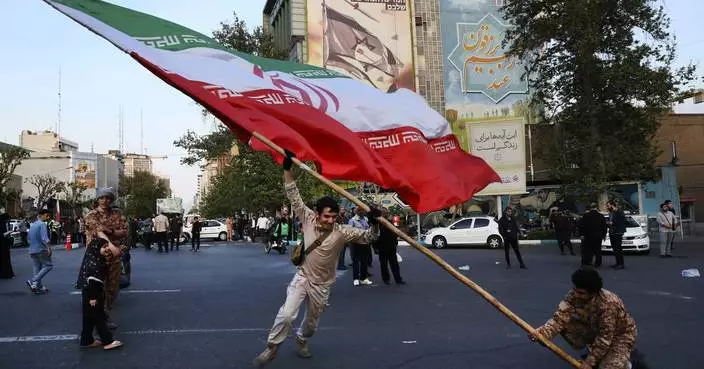After Tnuza Jamal Hassan was stopped from flying to Afghanistan last September, she allegedly told FBI agents that she wanted to join al-Qaida and marry a fighter, and that she might even wear a suicide belt.
She also said she was angry at U.S. military actions overseas and admitted that she tried to encourage others to "join the jihad in fighting," but she said she had no intention of carrying out an attack on U.S. soil, according to prosecutors. Despite her alleged admissions, she was allowed to go free.

FILE - This file photo provided by the Ramsey County Sheriff's Office in St. Paul, Minn., shows Tnuza Jamal Hassan, of Minnesota. Hassan, who authorities say had hoped to kill people when she set fires in January 2018 on a college campus, has been ordered detained by a federal judge. (Ramsey County Sheriff's Office via AP, File)
Four months later, the 19-year-old was arrested for allegedly setting small fires on her former college campus in St. Paul in what prosecutors say was a self-proclaimed act of jihad. No one was hurt by the Jan. 17 fires at St. Catherine University, but her case raises questions about why she wasn't arrested after speaking to the agents months earlier and shows the difficulty the authorities face in identifying real threats.
"She confessed to wanting to join al-Qaida and took action to do it by traveling overseas. Unless there are other circumstances that I'm not aware of, I would have expected that she would've been arrested," said Jeffrey Ringel, a former FBI agent and Joint Terrorism Task Force supervisor who now works for a private security firm, the Soufan Group, and isn't involved in Hassan's case. "I think she would've met the elements of a crime."
Authorities aren't talking about the case and it's not clear how closely Hassan was monitored before the fires, if at all. When asked if law enforcement should have intervened earlier, FBI spokesman Jeff Van Nest and U.S. Attorney's Office spokeswoman Tasha Zerna both said they couldn't discuss the case.
Counterterrorism experts, though, say it seems she wasn't watched closely after the FBI interview, as she disappeared for days before the fires. But the public record in a case doesn't always reveal what agents and prosecutors were doing behind the scenes.
Authorities are often second-guessed when someone on their radar carries out a violent act. Some cases, including Wednesday's mass shooting at a Florida high school that killed 17 people, reveal missed signs of trouble. The FBI has admitted it made a mistake by failing to investigate a warning last month that the suspect, Nikolas Cruz, could be plotting an attack.
U.S. officials were also warned about Boston Marathon bomber Tamerlan Tsarnaev two years before his 2013 attack, though a review found it was impossible to know if anything could've been done differently to prevent it. And the FBI extensively investigated Omar Mateen, the gunman in the June 2016 Orlando nightclub shooting. As part of an internal audit, then-FBI Director James Comey reviewed the case and determined it was handled well.
Hassan, who was born in the U.S., has pleaded not guilty to federal counts of attempting to provide material support to al-Qaida, lying to the FBI and arson. She also faces a state arson charge. One fire was set in a dormitory that has a day care where 33 children were present.
Although her attempts to set fires largely failed, Hassan told investigators she had expected the buildings to burn down and "she hoped people would get killed," Assistant U.S. Attorney Andrew Winter said in court. He added that she was "self-radicalized" and became more stringent in her beliefs and focused on jihad.
Hassan's attorney, Robert Sicoli, declined to talk about whether the family saw warnings. Her mother and sister declined to speak to The Associated Press.
According to prosecutors, Hassan tried to travel to Afghanistan on Sept. 19, making it as far as Dubai, United Arab Emirates, before she was stopped because she lacked a visa.
Prosecutors say that when the agents interviewed Hassan on Sept. 22, she admitted she tried to join al-Qaida, saying she thought she'd probably get married, but not fight. When pressed, she allegedly told investigators she guessed she would carry out a suicide bombing if she had to do it but she wouldn't do anything in the U.S. because she didn't know whom to target.
Hassan admitted that she wrote a letter to her roommates in March encouraging the women to "join the jihad in fighting," prosecutors allege. The letter was initially reported to campus security, and it's unclear when it was given to the FBI or if the agency made contact with Hassan before the September interview.
It's also unknown how closely U.S. authorities were monitoring Hassan between the interview and Dec. 29, when she was barred from traveling to Ethiopia with her mother. Prosecutors say at the time, Hassan had her sister's identification and her luggage contained a coat and boots, which she wouldn't have needed in Ethiopia's warm climate.
Hassan later ran away from home and her family reported her missing Jan. 10. Her whereabouts were unknown until the Jan. 17 fires.
Ron Hosko, a retired assistant director of the FBI's criminal division who has no link to Hassan's case, said that based on an AP reporter's description of it, "I would certainly look at this person, not knowing more, as somebody who would be of interest to the FBI." However he cautioned that the public doesn't know the extent of the agency's efforts to monitor Hassan, including whether she was under surveillance, what sort of background investigation was done and how agents might have assessed her capacity to follow through on a threat. He also said the FBI might have made decisions based on her mental capacity.
"Not every subject requires 24/7 FBI surveillance," he said. The reality is that hard decisions on resources are being made constantly, with the biggest perceived threats receiving the most attention.
"I'm sure there are plenty of days where they hope they are right and they are keeping their fingers crossed," he added.
Stephen Vladeck, professor of law at the University of Texas, said monitoring possible threats is a delicate balance, and law enforcement can't trample civil rights while trying to prevent violence.
"This is a circle that can't be squared," he said. "We are never going to keep tabs on every single person who might one day pose a threat."



